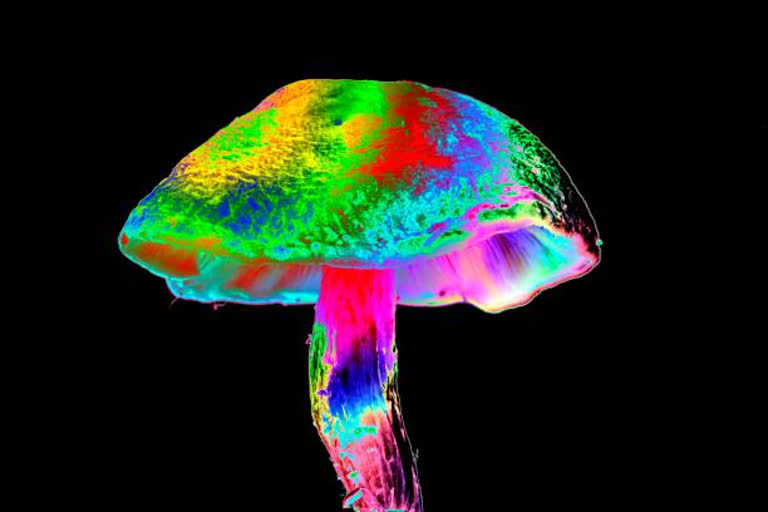Hyderabad: The psychedelic chemical in “magic mushrooms” may ease depression in some hard-to-treat patients, a preliminary study found. The effects were modest and waned over time but they occurred with a single experimental dose in people who previously had gotten little relief from standard antidepressants.
The study is part of a resurgence of research into potential medical uses of hallucinogenic drugs, and the results echo findings in smaller studies of the mushroom compound psilocybin. The researchers said larger and longer studies are needed to determine the effectiveness and safety of using psilocybin for depression. Their results were published Wednesday in the New England Journal of Medicine.
“The findings are both intriguing and sobering,’’ said Bertha Madras, a psychobiology professor and researcher at Harvard Medical School. Commenting in a journal editorial, Madras said the study is the most rigorous study to date evaluating psilocybin for treating depression. She was not involved in the research.
Researchers tested the chemical in 233 adults in the U.S., Europe and Canada. Each swallowed capsules containing one of three doses of psilocybin during a 6-to 8-hour session. Two mental health specialists guided them through hallucinatory experiences. Results for the highest and medium-strength doses were compared with those in the very low dose control group. There was no comparison with an inactive dummy drug or with conventional antidepressants, and there were other limitations.
Depression symptoms declined in all three groups, with the greatest initial improvement in the highest-dose group. At three weeks, 37% of high-dose recipients had substantially improved. But those effects weren’t as good as seen in studies of standard antidepressant drugs, and the results waned in the following weeks.
Also read: Poor quality sleep may put you at high glaucoma risk
At three months, 20% in the high-dose group still saw substantial improvement. Compass Pathways, a London-based firm developing psilocybin for commercial use, paid for and helped conduct the study. It recently announced it is launching a larger, more rigorous study. Side effects, including headaches and nausea, were common in all three study groups. Serious side effects were uncommon but they included suicidal thoughts and self-injury — mostly in participants with a history of suicidal thoughts.
Dr. David Hellerstein, a co-author and Columbia University research psychiatrist, said those side effects are not surprising given the intensity of the psychedelic experience from the drug. But he said they underscore the importance of using psilocybin in a medical setting. “This is not a home run, but it’s very encouraging,’’ Hellerstein said, noting that improvement was seen after just one dose.
However, he said it’s likely that additional doses would be needed to achieve long-lasting results. That could make use costly, given the need for several hours of medically supervised treatment. More than 180 studies of psilocybin and other psychedelics for use in depression, PTSD and other mental conditions are listed on a National Library of Medicine website.
The U.S. government still classifies the chemical as a controlled substance, with no accepted medical use. Several cities have already decriminalized magic mushrooms and Oregon is the first state to approve medical use. Philip Corlett, an associate psychiatry professor at Yale University, said many important challenges remain, including determining whether psilocybin has any real effect on reducing depression.
One theory is that it stimulates portions of the brain that control levels of the mood-influencing chemical serotonin. It also may reconnect brain circuits — but both theories remain to be proven. “I think we should be taking our foot off the gas a little bit and figure out exactly how they (psychedelics) work in order to optimize it,’’ Corlett said. “They don’t work for everybody.’’ (AP)
(This story has not been edited by ETV Bharat and is auto-generated from a syndicated feed.)



